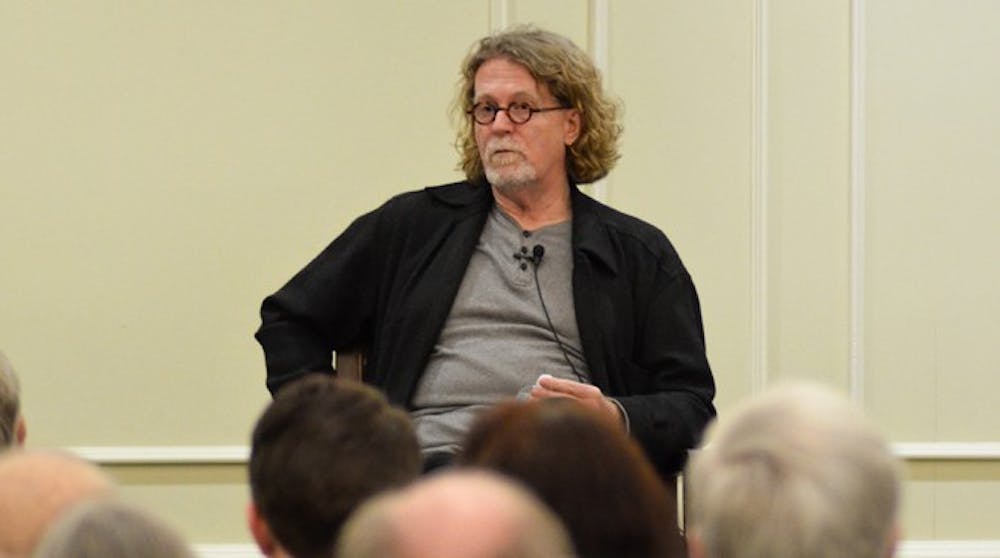"There are two wolves inside every person, and the wolf that wins is the one you choose to feed," Curt Tofteland said as he began his speech about his evolving program Shakespeare Behind Bars.
Tofteland spoke in the Jepson Alumni Center at 7 p.m. on Jan. 23 about the acting program he founded 18 years ago. It teaches rehabilitation and restoration within prisons throughout Kentucky and Michigan, he said. Tofteland spoke as part of the 2012-2013 Jepson Leadership Forum. He began his lecture by reading a short story about two wolves that chose different paths, one, a life of imprisonment, and the other freedom. Afterwards, he opened up the floor for the crowd to dictate what he would discuss.
"I thought you were just born with empathy 'cause of how I was raised," Tofteland said. "Then, when I began working at the prisons, I realized that some people weren't born with it. The second thing I realized is that it can be taught. After I made that discovery, I decided to spend the rest of my life teaching empathy because that'll make the world a better place."
The Shakespeare Behind Bars program in Kentucky comprises 30 inmates who are sponsored by previous members of the program, Tofteland said. "Within the circle of trust, each member digs deep into his past to know who he was, define who he is and decide who to be," Tofteland said.
The members work with Tofteland to perform Shakespeare's plays as part of the therapeutic process, Tofteland said. Tofteland loves Shakespeare's writing and said "there is no writer who is more knowledgeable about the human condition and no one as prolific."
The warden at the Kentucky Department of Corrections allowed Tofteland to have a film crew follow him for nine months and film a documentary about the program for awareness, Tofteland said. "The warden understood very deeply that punishment doesn't change behavior, but education does," Tofteland said. "I have an addiction issue -- miracles. I see them every day, and it is habit forming."
Another important aspect of the program is giving the men the confidence and ability to work when they are released, said Tofteland. "I have a number of guys who want to return to their neighborhoods and help out in local churches and clean up the areas," Tofteland said. "We need for society to eliminate the stigma, so these men can get jobs and housing."
The reason acting is a successful solution is that when one acts, one needs to figure out the character's motivations, which allows the men to explore their own lives and human behaviors, Tofteland said.
"I learned that there is hope and that there are creative people who can help make a difference and teach others by sharing their talents and visions," Richmond alumnus Ken Knorr said.
There were about 70 audience members at the Alumni center, including faculty, alumni, students and Richmond residents.
"I personally enjoyed the lecture, but I think it would have been more interesting if he hadn't opened it up to the floor," freshman David Heyer said. "He could have focused more on the cause."
Arlene Lerner said: "I'm a psychologist and a lover of Shakespeare, but I was somewhat dubious about the long-term effects of the Shakespeare Behind Bars program. I know the program well, and I thought that the lecture and film were fantastic."
Enjoy what you're reading?
Signup for our newsletter
The next step in Tofteland's plan is to bring his program out of the prisons and juvenile centers and onto the streets to the boys and girls' club, Tofteland said.
Contact reporter Katie Davidson at katie.davidson@richmond.edu
Support independent student media
You can make a tax-deductible donation by clicking the button below, which takes you to our secure PayPal account. The page is set up to receive contributions in whatever amount you designate. We look forward to using the money we raise to further our mission of providing honest and accurate information to students, faculty, staff, alumni and others in the general public.
Donate Now



